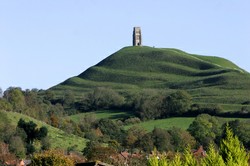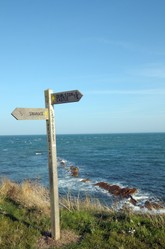Friday May 8th, and the nation was awakening to a dream for some and a nightmare for others.Only two parties had done well in Thursday's general election. The Conservatives, who had been been the largest party in the previous coalition government, had enough seats to form a majority government without coalition. Lucky for them, as the only party in mainland Britain who would govern with them, the Liberal Democrats, had been massacred at the polls and reduced from fifty six seats to eight, losing many senior figures. The Scottish Nationalists were triumphant, as their election campaign, which focused not on independence, which Scots mainly do not want, but on an end to austerity economics, had captured fifty six out of fifty nine Scots seats.
Labour, however, had had its worst election result for years. Part of the problem was that the Scots Nationalists had suggested that they might back Labour in a coalition, but English voters rightly feared that the resulting coalition would contain a nationalist party that has neither interest in England nor liking for the English and so were deterred from supporting Labour, even though the Labour leader had rejected coalition with the Scots Nationalists.But the moribund Labour party in Scotland, which had previously dominated the politics of the country, was destroyed at the polls by the more vigorous and more left wing Scots Nationalists, so Labour was squeezed in England and Scotland.
The United Kingdom Independence Party managed one seat, despite having fifteen percent of the votes. Likewise the Greens picked up one, while Northern Irish parties, which differ from those in Britain, divided up almost as usual between nationalists and unionists. The Welsh Nationalists are unchanged in seat numbers.
But three party leaders have resigned: Ed Milliband of Labour, Nigel Farage of the United Kingdom Independence Party, and Nick Clegg of the Liberal Democrats, whose mistakes of political judgment were responsible for the party's woes, even though as deputy prime minister he was excellent.














 Pilgrimage. A review20 days ago
Pilgrimage. A review20 days ago
 Leo the Fourteenthon 05/09/2025
Leo the Fourteenthon 05/09/2025
 The Melsonby Hoardon 03/25/2025
The Melsonby Hoardon 03/25/2025



Comments
Yes. The comparison is apt.
The first sentence to the third subheading, Problems of representation, alerts us to the political situation that "Currently, there are four nations, three of which enjoy their own parliaments: Scotland, Wales and Northern Ireland. They are a step down from the national parliament in Westminster."
Is the eastern-pond situation similar to that of the 50 Unitedstatesian states having state legislatures "a step down" from the federal-governmented Congress?
The third paragraph to the third subheading, Problems of representation, characterizes Wales as "weak" in its nationalism.
Why is Welsh nationalism weak?
Might it have something to do with feeling more included because of the heir to the throne having the title Prince of Wales?
Cornwall was involved in a war with the English kingdom of Wessex in the late first millenium and lost, so it was absorbed into England. Cornish independence would turn back the clock. I live a mile from the border of the Saxon kingdoms of Northumbria and Mercia. The border means nothing now, and I want to keep it this way.
There's a map at the Government of the Netherlands site. The progression from the home page to topics to Brexit to Questions and answers permits the map, in answer to the question, Which countries make up the United Kingdom?
The site places England, Northern Ireland, Scotland and Wales within the UK and Ireland and Isle of Man on the map, in blue like what they show of continental Europe (Belgium, France, Netherlands) and outside the UK.
What removed Cornwall from consideration as a country? Would it be advantageous to have a Cornwall country and parliament?
We have no
English parliament because of obstruction by the Scottish Nationalists. The prime minister was going to institute an
English parliament, but the Nationalists objected that a clause in the treaty that united England and Scotland gave Scottish members of parliament a vote in all issues on which the national parliament voted. To avoid trouble with them the government backed off. It is a total injustice against England. I was and am angry.
The first paragraph under your third subheading, Problems of Representation, describes Northern Ireland, Scotland and Wales as each having their own parliaments.
Why is it that England has no such parliament?
It seems that Cornwall and the various islands must not have their own parliaments either.
Why would that have happened, and would it be something that can be fixed?
The metaphor of a giant deck of cards is very apt, and so far I am unaware of anyone who has used it before you. So thanks for your contribution to British political language!
WOW! What a mess you all have on your hands in the UK. It's difficult for an American to understand, but your article does help. Seems like its a giant deck of cards that's reshuffled completely with each new election, and perhaps some cards fall away and get lost.
You point out that lack of education of the part of the electorate is a problem there, and we see that here, too, in a big way.
Thanks Mira. I am concerned over the quality of political debate in the country, and that's reflected in the poor quality media coverage.
Only two days ago I spoke to a woman who said that she blamed the Liberal Democrats for going into coalition with the Conservatives, as that meant that we could not deliver our promises, but without coalition we would not have been able to deliver any promises. As it is we were the smaller party in the coalition and managed to deliver some major promises. One vitally important one was raising the level at which people begin paying tax. This reform has helped hundreds of thousands of ordinary people keep more of their earnings.